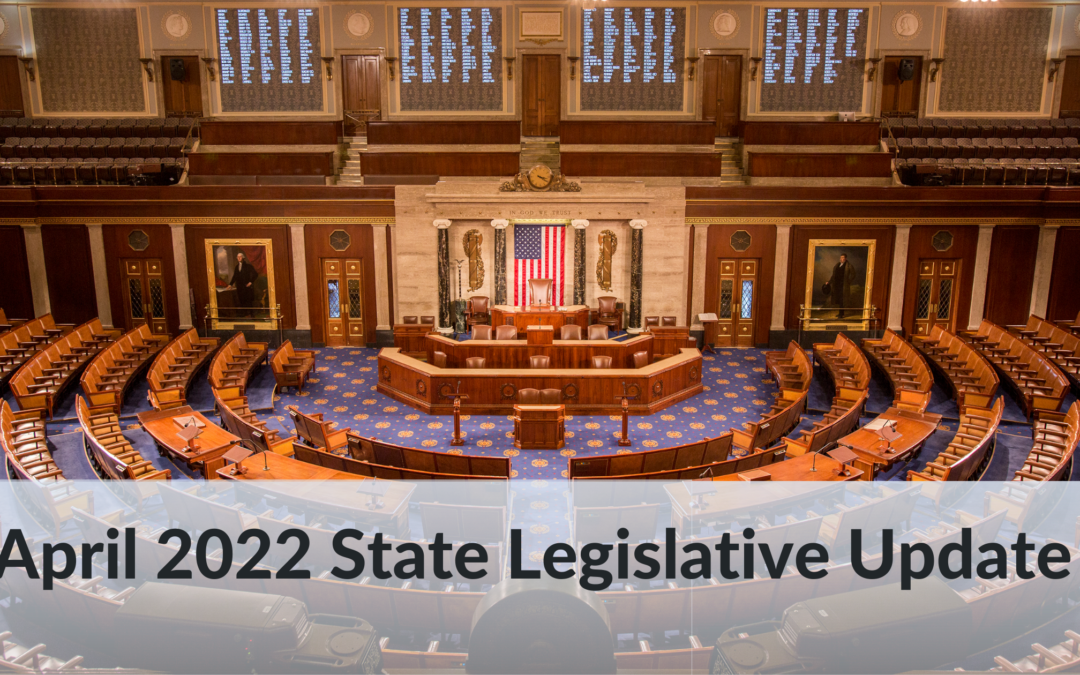Nineteen of the 46 states in session in 2022 have adjourned for the calendar year. Over the past four months, CAI’s 36 state legislative action committees (LACs) and more than 600 volunteer committee members worked tirelessly to advocate on behalf of the community association housing model.
CAI is tracking more than 1,400 bills across the country that impact community associations. We identified trends that became priority issues. We broke these priorities into two categories: condominium safety and general community association housing model. Below is a legislative summary of these trends to date.
Condominium Safety Public Policy Priority Update
Reserve Studies and Funding. CAI supports statutorily mandating reserve studies and funding for all community associations. CAI’s Condominium Safety Public Policy Report provides details to help communities prepare for and a timeframe to practically transition to these new requirements to avoid financial strain on homeowners and the association. The Foundation for Community Association Research’s Best Practices Report: Reserve Studies and Reserve Management provides excellent procedures pertaining to reserve planning and funding for homeowner leaders and community managers to put into practice immediately.
To date, Colorado, Connecticut, Florida, Georgia, Illinois, Maryland, and Virginia have introduced legislation regulating reserve studies and funding. Maryland’s legislature passed legislation mandating reserve studies and funding, which awaits the governor’s signature. Virginia passed legislation creating a study program under the Department of Professional and Occupational Regulation to analyze the adequacy of existing law to address structural integrity and reserves in common interest communities. Colorado, Connecticut, and Illinois’ legislation regulating reserves remains active during their legislative session. Florida and Georgia adjourned for 2022 without passage of their reserve bills.
Building Maintenance and Structural Integrity. CAI supports additional requirements by developers in both areas during the development process and prior to transition to the homeowners. Structural integrity is addressed through statutorily mandated building inspections starting when the building is 10 years old, another inspection at 20 years, and every five years thereafter. Inspections are based on the American Society of Civil Engineers’ published protocol for building inspections.
To date, Florida, Hawaii, and Virginia have introduced legislation addressing building inspections and structural integrity. As stated above, Virginia new legislation creating a study program that will analyze structural integrity and reserves. Florida’s legislation died upon adjournment in 2022.
Community Association Housing Model Advocacy Priority Update
Amendment Process to Remove Discriminatory Covenants. To advance racial equity, CAI supports a process by which a community association board may remove antiquated and unenforceable discriminatory restrictions contained in covenants without a vote of the owners. We advocate for the adoption of state legislation providing a process that allows the removal of restrictions deemed to be discriminatory under the federal Fair Housing Act or state anti-discrimination laws.
To date, Connecticut, Georgia, Hawaii, Louisiana, Massachusetts, Missouri, Nebraska, Ohio, South Carolina, and Vermont have introduced legislation addressing the amendment process to remove discriminatory restrictive covenants. CAI monitors this legislation to ensure that our model legislative language is considered within the writing.
Housing Affordability. CAI supports access to sustainable homeownership, including the construction and rehabilitation of affordable housing units, within the community association housing model. We do not support government preemption of lawful zoning and land use policies adopted by municipalities or of community association covenants that govern property use. Community association autonomy over lot size and use—including placement of multifamily structures on lots designated for single-family use by association covenants and placement of accessory dwelling units—should not be diminished by state policy.
CAI is tracking more than 130 pieces of legislation impacting housing affordability in California, Connecticut, Delaware, Florida, Hawaii, Iowa, Illinois, Massachusetts, Maryland, Maine, Minnesota, North Carolina, New Jersey, New York, Oregon, Rhode Island, South Carolina, Vermont, Virginia, Washington, and Washington, D.C.
If you have questions or comments, please contact CAI’s Government and Public Affairs team at government@caionline.org, and learn more about CAI’s advocacy priorities.



